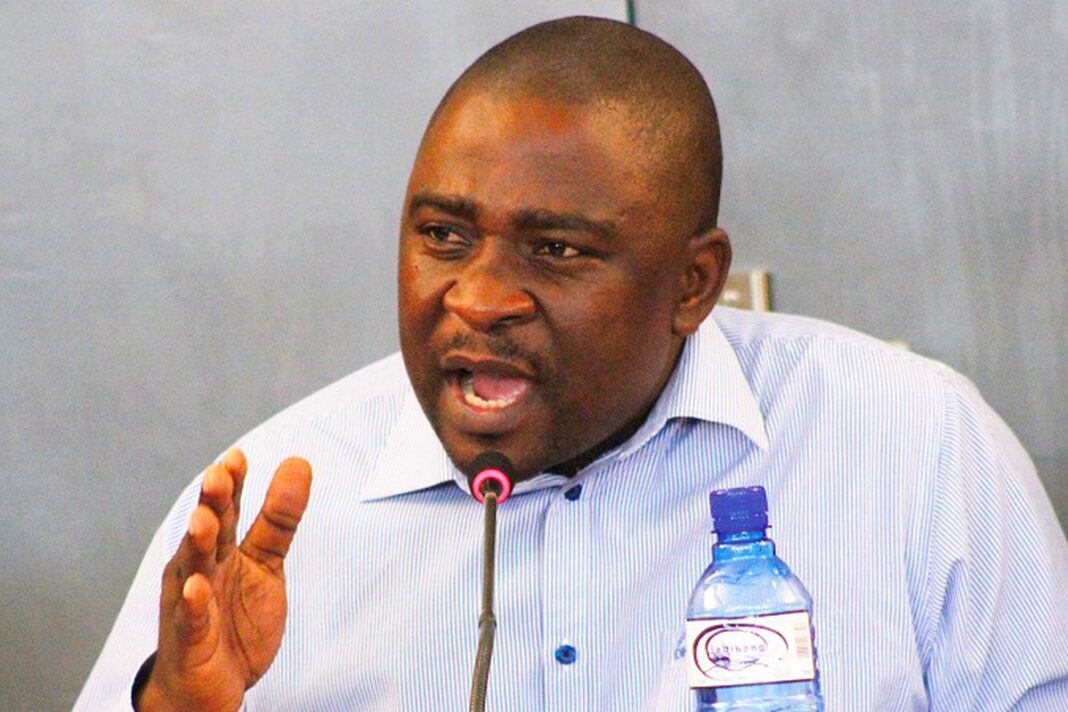Ntsoaki Motaung
In a startling revelation, Health Minister Selibe Mochoboroane admitted to a significant oversight in Lesotho’s healthcare system regarding the administration of the crucial Bacille Calmette-Guérin (BCG) vaccine.
Addressing the nation’s concerns, Mochoboroane acknowledged the vaccine’s availability but pointed out the absence of necessary syringes, a situation causing widespread anxiety among parents.
According to the Centre for Disease Control and Prevention, BCG, or bacille Calmette-Guerin, is a vaccine for tuberculosis (TB) disease.
It is used in many countries with a high prevalence of TB to prevent childhood tuberculous meningitis and miliary disease.
“The vaccine supply isn’t the issue; it’s the expired syringes that pose a challenge,” Mochoboroane said.
“We are unable to use the expired syringes due to potential health risks,” the minister explained.
Mochoboroane reassured the public that his ministry was “working tirelessly to remedy the situation”.
He noted the issue would soon be resolved with the arrival of new syringes.
He indicated that an announcement would be made for new born children who missed their first shot to report to their nearest facilities to be vaccinated promptly.
“The shipment of syringes has been ordered and is expected to be delivered soon and the syringes arrive, babies who did not get BCG will be vaccinated,” he said reassuring there are no immediate health impacts if BCG is administered long after the child is born.
World Health Organisation (WHO) reports that, the vaccine has been shown to be consistently protective against infant tuberculous meningitis and miliary tuberculosis, and remains an important tool for the prevention of tuberculosis.
“BCG vaccination has been part of immunization programmes since the 1960s and part of EPI programmes since 1974. While being shown to be effective in infants, evidence for BCG protection against pulmonary tuberculosis in older children and adults is more variable, ranging from 0 percent to 80 percent, and tends to be higher in individuals with no detectable prior exposure to mycobacterial infection or environmental mycobacteria.”
The minister revealed a systemic issue: Lesotho lacks local medical equipment manufacturing, leading to challenges in procuring such items in large quantities, highlighting a severe problem of mismatch between the vaccine’s shelf life and that of the syringes.
“Their lifespans don’t align, which has led to the country’s current predicament.”
Inside sources, preferring anonymity, when speaking with Newsday criticised the situation, suggesting it might indicate deeper issues within the Ministry of Health.
They hinted that the problem could be symptomatic of either governmental mismanagement or a broader inability to cope with healthcare demands.
“The absence of syringes means that the vaccine is not administered to eligible persons, so it is the same as it is out of stock,” they said.
A source from Qacha’s Nek also a staff member to one of clinicsreported, “It’s been over two weeks. This shortage isn’t just in the clinics; it extends to hospitals like Machabeng Hospital.
This crisis not only underscores a pressing issue with vaccine administration but also casts a spotlight on the persistent challenges facing Lesotho’s primary healthcare system, including supply chain management and reliance on international medical equipment supply as well as shortage of medical practitioners.
According to World Bank, looking at key health indicators, such as infant mortality (IMR) which 59/1000 livebirths, maternal mortality 1,020/100000, one can see that health outcomes are still extremely poor in Lesotho, despite significant investments in the sector.
Mochoboroane was also quick to tell Newsday that, however, the situation will be addressed very soon because the shipment of syringes has been made and is expected to be delivered.
“When the syringes arrive, babies who did not get BCG will be vaccinated,” he said adding that there are no effects if BCG is taken long after the baby is born.
He said Lesotho does not have a place where medical equipment is manufactured and have to be procured in large numbers.
When commenting on how it is possible that the syringes can expire while the vaccine is still, he said “The vaccine is liquid and the syringes are a material and their lifespan do not merge,” he said.
“The syringes are used when administering various vaccines, in this case I do not know what really transpired but this is an indication that something did not add up or it was not merged, because you cannot have the vaccine left when the equipment used to administer its short,” he said.
Mochoboroane indicated that the supply chain is busy working on the issue to make sure that it does not repeat itself.
Meanwhile, sources close to the ministry whose names are withheld indicated that, according to World Health Organisation (WHO) guidelines, no country is expected to be short of the BCG vaccine because of its importance.
They indicated that even if the explanation is that the vaccine is there but the syringes have expired, that still somehow mean that there is no vaccine because it is not available to the people who need it.
“The stock out of BCG can only mean something very big is happening and the ministry cannot cope or the government is just handling things carelessly,” the sources said.
The paper also talked to the sources close to the office of District Medical Office in Leribe district where they confirmed BCG stock-outs but could not also say how long this has taken place or mention health facilities which are affected.
On the other hand, the Public Relations Manager for the Ministry of Health Tumisa Mokoai when addressing local journalists in a Whatsapp group on January 9 indicated that by that time the Ministry was busy rounding all the facilities.
“We are busy right now rounding all the facilities doing this kind of sluggish work when they are supposed to service the nation. This is painful when it is politicized with the lives of people involved especially kids,” he wrote.
Mokoai continued to share the medicines chart in the group which showed the name of the syringe, the number of syringes in stock, the name of the vaccine, and the quantity available in store.
The chart revealed that at least 140, 000 doses of BCG were available. Among other vaccines was Penta with 8, 500, OPV 82, 500, MR 72, 957, Td 5, 940, DT 61, 700, PCV13 2, 800and ROTA 16, 550 doses.
According to the sources to administer BCG 0.05ml syringes are needed and the chart provided by the PRO did not show 0.05ml syringes.
Summary
- “The shipment of syringes has been ordered and is expected to be delivered soon and the syringes arrive, babies who did not get BCG will be vaccinated,” he said reassuring there are no immediate health impacts if BCG is administered long after the child is born.
- While being shown to be effective in infants, evidence for BCG protection against pulmonary tuberculosis in older children and adults is more variable, ranging from 0 percent to 80 percent, and tends to be higher in individuals with no detectable prior exposure to mycobacterial infection or environmental mycobacteria.
- “The absence of syringes means that the vaccine is not administered to eligible persons, so it is the same as it is out of stock,” they said.

Your Trusted Source for News and Insights in Lesotho!
At Newsday Media, we are passionate about delivering accurate, timely, and engaging news and multimedia content to our diverse audience. Founded with the vision of revolutionizing the media landscape in Lesotho, we have grown into a leading hybrid media company that blends traditional journalism with innovative digital platforms.







